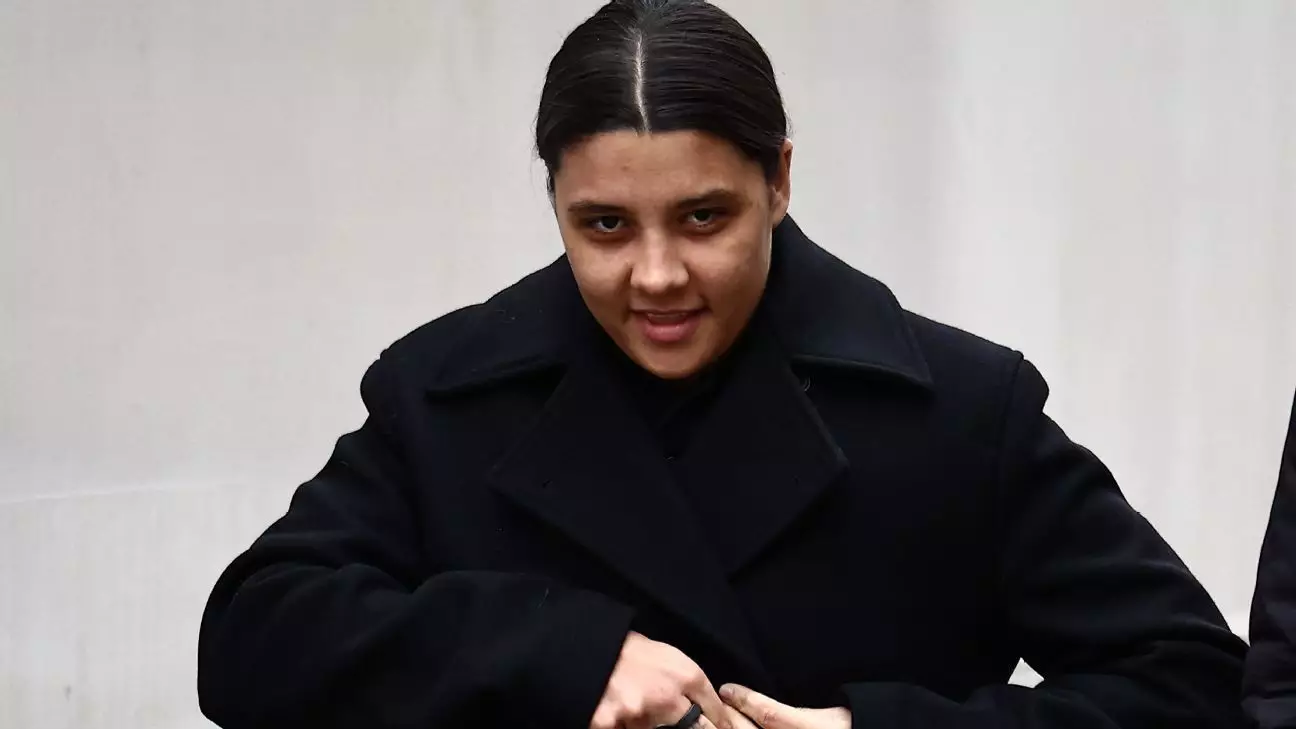The recent legal proceedings involving Chelsea football star Sam Kerr have placed a spotlight not only on the complexities of justice but also on the intertwined relationship between celebrity culture and law enforcement. The trial revolves around allegations of racially aggravated harassment against a police officer, sparking discussions on the ramifications of public personas and legal actions. This case is particularly significant as it touches on the intricacies of race relations, the public’s perception of authority, and the effects of celebrity status on legal processes.
The events leading to Kerr’s trial took place in the early hours of January 30, 2023. Reports emerged that Kerr and her partner, Kristie Mewis, had been out drinking. They were later taken to a police station after a taxi driver accused them of being disruptive, specifically suggesting they refused to pay for cleaning costs due to one of them being sick and allegedly damaging the vehicle. This narrative sets the stage for a series of allegations, misunderstandings, and interpretations that would culminate in a courtroom drama.
The taxi driver’s portrayal of the incident sharply contrasted with the accounts of Kerr and Mewis, who claimed they had been subjected to erratic driving. They described the driver as being overly aggressive and locking them in the vehicle, creating a situation ripe for conflict. This dichotomy illustrates the blurred lines of reality that often accompany disputes involving multiple parties with differing perspectives and motives.
The charge against Kerr emerged after a convoluted process involving the Crown Prosecution Service (CPS). Initially, the CPS had opted not to pursue charges based on the allegations. However, a subsequent police request prompted a reevaluation of the case. The crux of the allegation involves Kerr’s purported comments directed at Officer Stephen Lovell, where she referred to him as “stupid and white.” Although Kerr admits to uttering the words, she contests that they do not constitute the racially aggravated harassment implied by the charge.
Lovell’s testimony introduces significant complexity to the case. He indicated that Kerr’s remarks left him feeling “shocked, upset, and humiliated.” However, the narrative surrounding his perceptions raises questions about the objectivity of his response and any potential influences stemming from the fact that Kerr is a prominent public figure. It was noted that Lovell did not mention the impact of Kerr’s comments in his initial statement, leading to assertions from Kerr’s legal team that his subsequent statement was a reaction to the CPS’s original decision not to prosecute.
Kerr’s defense team undertook a vigorous examination of Lovell’s motivations throughout the trial. By highlighting the timeline of events, particularly the overlap with the Women’s World Cup, the defense suggested that Lovell’s actions were influenced by Kerr’s celebrity status. The defense pointed out that during this high-profile sporting event, Kerr’s visibility would have increased significantly, raising questions about whether the officer felt compelled to escalate the situation due to her prominence.
This discourse illustrates the potential for a disproportionate response based on an individual’s social standing. Defense attorney Grace Forbes challenged Lovell’s claims of feeling unimportant, asserting that he was “determined to pursue this person” through legal routes. Lovell’s acceptance of this assertion adds a layer of complexity to the understanding of how personal feelings can potentially cloud professional judgment.
The case raises imperative questions regarding the dynamics between celebrities and the justice system. With the public often enamored by high-profile figures, how accusations against them are handled can significantly impact societal perceptions of justice and equality. The incident underscores a growing concern that the judicial process itself might become entangled with the perceptions and sentiments stirred up by celebrity culture.
As this trial unfolds, it not only seeks to address the specific allegations against Kerr but also serves as a broader commentary on societal expectations, accountability, and the experience of marginalized groups confronting authority figures. The outcomes of this case may well influence public perceptions of justice, especially in regards to how celebrity can overshadow legal processes, raising critical discussions in the ongoing discourse surrounding race, authority, and fame.
As the trial of Sam Kerr progresses, the implications extend far beyond the courtroom. It offers a lens through which to examine the interactions between celebrity status and the legal system, the subjective nature of offense, and the sociocultural ramifications of such high-profile cases. Ultimately, the resolution of this trial may signal a direction for how similar cases are handled in the future, highlighting the need for balance between celebrity culture and the pursuit of justice.


Leave a Reply